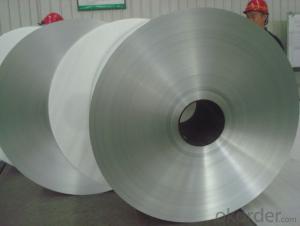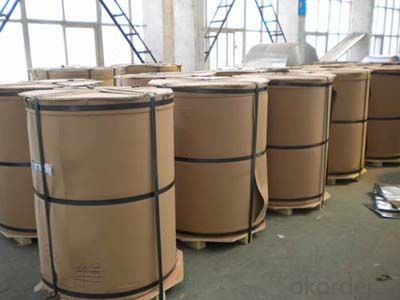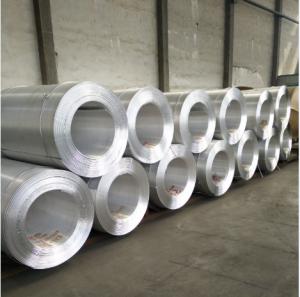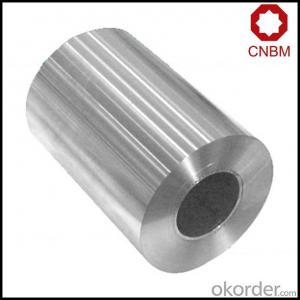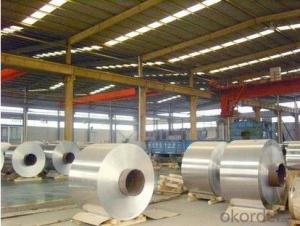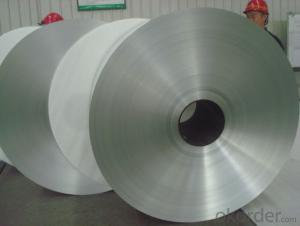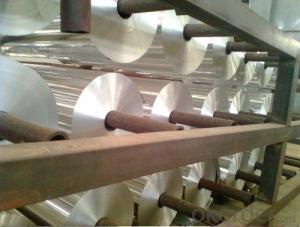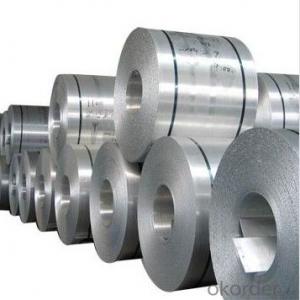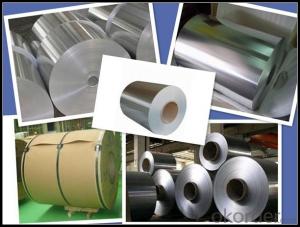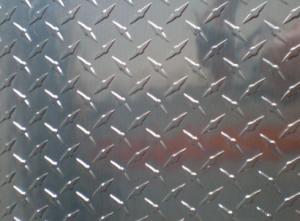12 Inch ASTM Grade 6061 Aluminum Strips Belt for Solar
- Loading Port:
- Shanghai
- Payment Terms:
- TT OR LC
- Min Order Qty:
- 5 m.t.
- Supply Capability:
- 500 m.t./month
OKorder Service Pledge
OKorder Financial Service
You Might Also Like
Specification
ASTM Grade 6061 Aluminum Strips Belt For Solar
aluminum coil specifications:
1) Alloy :1050, 1060,1100, 3003 3004 3105 3A21 5005 5052 etc
2) Temper: O/H12/H14/H1/H18/H32/H34/H36/H38//H111/H112/H116/H321/T6/T651/T3/T351 etc
3) Thickness: 0.1mm to 6mm
4) Width:20mm to 3300mm
5)Coil weight: 100kgs to 6 tons depends on actual requirement
6)Core material: Aluminum or paper
7)Coil Inner diameter: 75mm, 150mm, 200mm, 300mm, 405mm, 505mm or as required
8) Protective film can be added
item | 3003 Aluminum coil | |
Standard | GB/T3190-2008,GB/T3880-2006,ASTM B209,JIS H4000-2006,etc | |
Material | 1060,1050,1100 3003,3103,3004,3005,3105 5052, 5454,5754 | |
Size | Thickness | 0.5mm-3.5mm |
Width | 800-1500mm | |
Weight/Roll | About 1.5MT/3MT | |
Quality control | Mill Test Certificate is supplied with shipment, Third Part Inspection is acceptable. | |
Surface | Bright, polished, hair line, brush, checkered, embossed, etc | |
Trade terms | Price term | ,FOB, CNF, CIF, etc |
Payment Term | TT,L/C | |
MOQ | 2MT | |
20 GP Capacity | About 20-25MT | |
Delivery time | 1.The products will delivery immediately after receiving the payment. 2.According to the order quantity, prompt delivery. | |
Export to | Ireland,Singapore,Indonesia,Ukraine,Spain,Canada,USA,Brazil,Thailand,Korea,Iran,India,Egypt,Kuwait, Oman,Viet Nam, South Africa, Dubai, Russia, etc | |
Package | Stick blue film→plastic film→waterproof paper→1~2 tons on a export standard pallet(corner protection) | |
Application | 1)Further making utensil.2)Solar reflective film3)The appearance of the building4)Interior decorating:ceilings,walls,etc.5)Furniture cabinets6)Elevator decoraction7)Signs,nameplate,bags making.8)Decoration inside and outside the car9)Household appliances:refrigerators,microwave ovens,audio equipment,etc.10)The consumer electronics:mobile phones,digital cameras,MP3,etc. | |
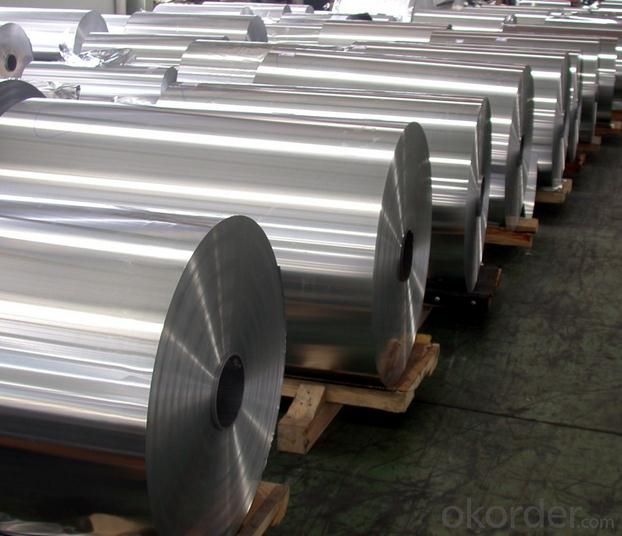
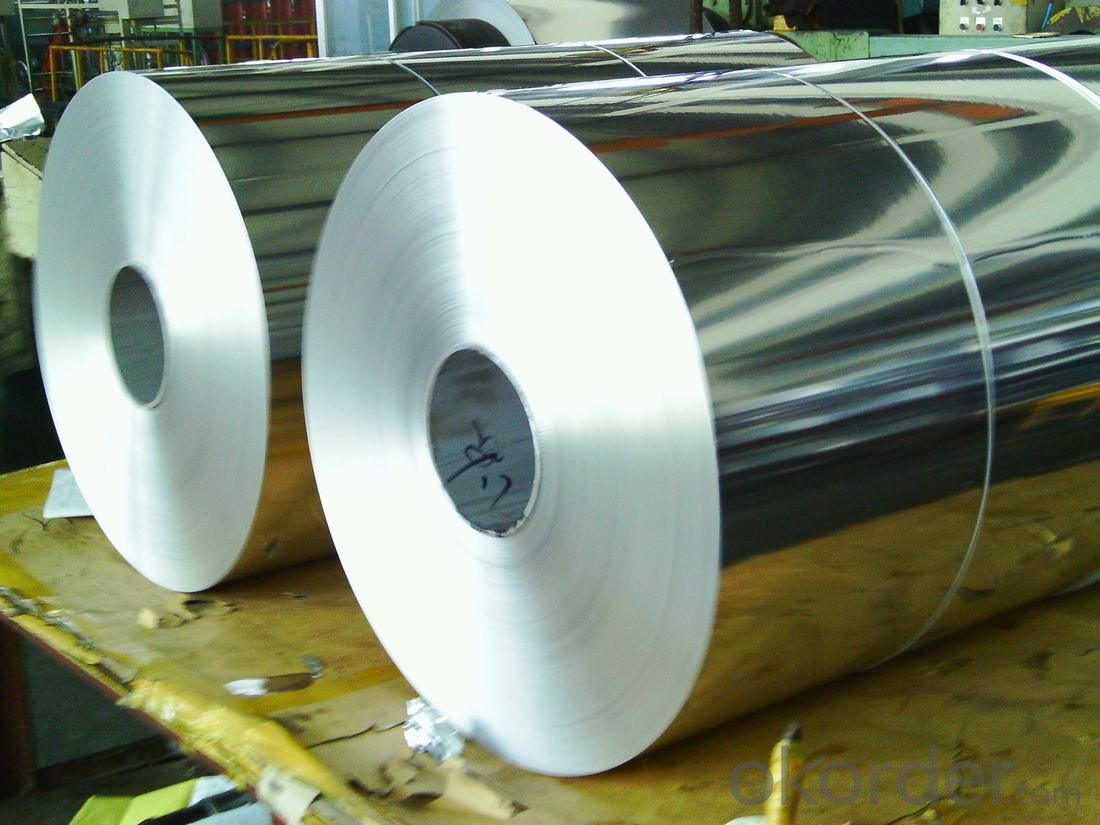
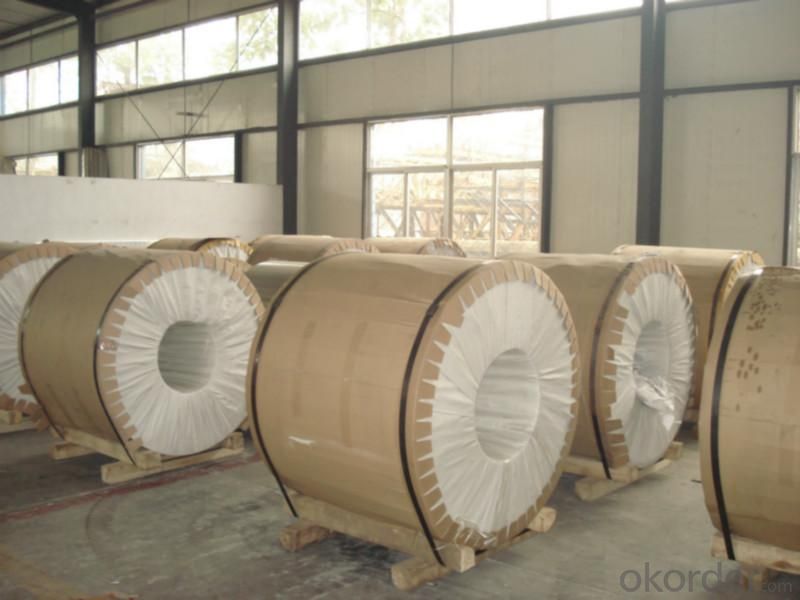
- Q: Can aluminum coils be used in the production of electronic devices?
- Aluminum coils have the capability to be utilized in the manufacturing of electronic devices. Within diverse industries, including electronics, aluminum is a versatile and extensively employed material. It possesses exceptional electrical and thermal conductivity, rendering it appropriate for implementation in electronic components such as coils and inductors. In the realm of electronic devices necessitating the transmission of electrical energy, aluminum coils are frequently employed in power transformers, motors, generators, and other tools. Moreover, aluminum is an appealing option for manufacturers due to its lightweight nature, durability, and cost-effectiveness. Nevertheless, it is crucial to acknowledge that the appropriateness of aluminum coils will ultimately depend on the specific application and requirements of the electronic device.
- Q: I need help with 3 main ideas for a aluminum and copper chloride lab. I need evidence for these 3 ideas that what happened was a chemical reaction.
- Change in mass, change in color, change in temp, change in ...
- Q: How are aluminum coils tested for surface hardness?
- To ensure the quality and suitability of aluminum coils for various applications, a variety of methods are employed to test their surface hardness. One commonly used method is the Rockwell hardness test. During the Rockwell hardness test, a specified amount of force is applied to the surface of the aluminum coil using either a diamond or hardened steel ball. The depth of the resulting indentation made by the ball is then measured, and a hardness value is determined by comparing the difference in depth before and after the force is applied. This value is then compared to a hardness scale in order to assess the surface hardness of the aluminum coil. Another method utilized is the Brinell hardness test. In this test, a specified force is applied to the surface of the aluminum coil using a hardened steel ball. The resulting indentation's diameter is measured, and a hardness value is calculated based on the applied force and indentation size. This value is then compared to a hardness scale to determine the surface hardness of the aluminum coil. Both the Rockwell and Brinell hardness tests are non-destructive and provide accurate measurements of the surface hardness of aluminum coils. These tests enable manufacturers and customers to ensure that the coils meet the necessary hardness criteria for their intended applications, such as in the automotive or construction industries. By conducting surface hardness tests, any potential issues like brittleness or insufficient strength can be identified and addressed prior to the utilization of the aluminum coils in the production process.
- Q: If you were to make something from each of these.which is more expensive? aluminum or carbon fiber ?which is stronger?What would the advantages or disadvantages of each be?
- CF is always more expensive - mostly because of production costs. Aluminum can be bent, machined, and extruded - all relatively cheap processes. CF has to be molded and typically requires a long cure time - so, slow and expensive. CF has higher strength to weight ratio - so if you're building an airplane or other thing where weight is critical... But, the strength thing is really complicated - how far does either deflect under a given load? And is deflection a good thing as in, say, a carbon fiber fly rod. At the deflection limit what happens? Aluminum takes a permanent bend, carbon fiber shatters. An aluminum car fender given a small bump will dent - a carbon fiber one will bounce back without a scratch. Given a larger bump the aluminum will dent more and the carbon fiber one will shatter. And while we're talking about bending - aluminum will 'cold work' - that is if you bend it back and forth and back and forth a zillion times first it becomes harder, then more brittle, then it breaks. Carbon fiber designs can be made to flex repetitively for much longer. Then there's heat issues. Aluminum can take a lot of heat. CF is actually 'composite construction' where some plastic (polyester resin, epoxy resin, etc) is required to bind the fibers together. All of these resins have different chractersitics when heated, but most of them have a Tg (temp at which they start to deform) of maybe 250 F or, for some hgih end epoxy resins, maybe 400 F - epoxy that can handle higher heat than that gets both expensive and difficult/dangerous to work with. So, carbon fiber leadin edges on the wing of an airplane that is designed to go supersonic might not be such a good idea. There's definitely no simple answer to this question.
- Q: Can aluminum coils be used for outdoor applications?
- Indeed, outdoor applications can utilize aluminum coils. Aluminum, as a material, possesses outstanding versatility and durability, enabling it to endure diverse weather conditions and temperatures. Its resistance to corrosion renders it suitable for outdoor environments that encounter moisture and humidity. Moreover, aluminum coils boast a lightweight characteristic, facilitating their transportation and installation within outdoor settings. Consequently, they find frequent usage in outdoor applications encompassing roofing, siding, gutters, and HVAC systems. Taken together, the strength, corrosion resistance, and longevity of aluminum coils establish them as a dependable option for outdoor applications.
- Q: Are aluminum coils suitable for low-maintenance roofing applications?
- Yes, aluminum coils are suitable for low-maintenance roofing applications. Aluminum is known for its durability, longevity, and resistance to corrosion, making it an ideal material for roofing. Aluminum coils are lightweight yet strong, providing excellent structural integrity to withstand various weather conditions. Additionally, aluminum is a low-maintenance material as it does not rust or require regular painting. This means that homeowners or building managers can save time and money on maintenance tasks such as repainting or replacing rusted parts. Overall, aluminum coils are an excellent choice for low-maintenance roofing applications.
- Q: How do aluminum coils perform under low-temperature applications?
- Aluminum coils generally perform well under low-temperature applications due to the metal's high thermal conductivity and excellent resistance to low temperatures. This allows the coils to efficiently transfer and distribute heat, making them suitable for various cooling and refrigeration systems. Additionally, aluminum's natural corrosion resistance helps maintain the coils' performance and durability in low-temperature environments.
- Q: Can aluminum coils withstand extreme temperatures?
- Yes, aluminum coils can generally withstand extreme temperatures. Aluminum has a high melting point of around 660 degrees Celsius (1220 degrees Fahrenheit) and excellent heat conductivity, making it suitable for various high-temperature applications.
- Q: This question asks for methods to prevent corrosion on aluminum coils during storage or transportation.
- <p>To prevent corrosion on aluminum coils during storage or transportation, follow these steps: 1. Store the coils in a dry, clean environment to avoid moisture and dirt. 2. Use protective wrapping or covers to shield the coils from moisture and contaminants. 3. Ensure proper ventilation in storage areas to prevent condensation. 4. Avoid stacking coils directly on the ground; use pallets or racks to keep them off damp surfaces. 5. Handle the coils carefully to prevent scratches or damage that could lead to corrosion. 6. Regularly inspect the coils for signs of corrosion and address any issues promptly. 7. Consider using anti-corrosion coatings or treatments on the coils if they will be stored for extended periods. By following these guidelines, you can minimize the risk of corrosion and maintain the integrity of your aluminum coils.</p>
- Q: Which is more unhealthy the bleached parchment paper or the aluminum from the pan?
- This is an easy question to answer. Parchment paper, bleached or unbleached is safer than using aluminum cookware. Unbleached parchment paper is safer than bleached parchment paper. . Cooking parchment is a sheet of bleached or unbleached paper impregnated with silicone. The silicone makes it releasable, that is, food won’t stick to it. . The use of bleached parchment is problematical. It might leach dioxin. It may leach dioxin. Hard to know for sure. The silicon has some sealing effect on the paper. To be absolutely safe, use unbleached parchment. . I use parchment paper to cook chicken in a George Forman Mini Roaster. I fold the perimeter, put the chicken in, punch a hole over the drain hole, fold the ends and side over the chicken, and voila...no major clean up, perfectly cooked moist chicken. . The safest cooking material is silicone baking sheets. Silicone sheets are good for cookies and stuff (and save trees) . If you’re worrying about dioxin leaching out of parchment, you might want to start worrying about the toilet paper you use. . Exposure to aluminum causes health problems. I learned that many years ago (about 1944) from Mr. Stern, my chemistry teacher. Aluminum salts from aluminum cookware can leach from the pot into the food being cooked in them, especially if the food is acidic. . The same prohibitions apply to cooking with aluminum foil. If you must use it to cook with, make a tent so the foil does not come in contact with the food. . Aluminum cookware is prohibited for sale in many European countries. It’s permitted in the United States because good aluminum cookware sold today is anodized (a process that seals the aluminum by changing it’s molecular structure. . Avoid cookware covered with a non-stick coating.
Send your message to us
12 Inch ASTM Grade 6061 Aluminum Strips Belt for Solar
- Loading Port:
- Shanghai
- Payment Terms:
- TT OR LC
- Min Order Qty:
- 5 m.t.
- Supply Capability:
- 500 m.t./month
OKorder Service Pledge
OKorder Financial Service
Similar products
Hot products
Hot Searches
Related keywords
